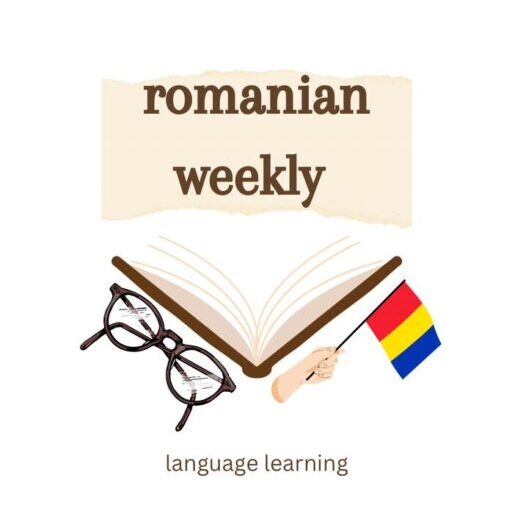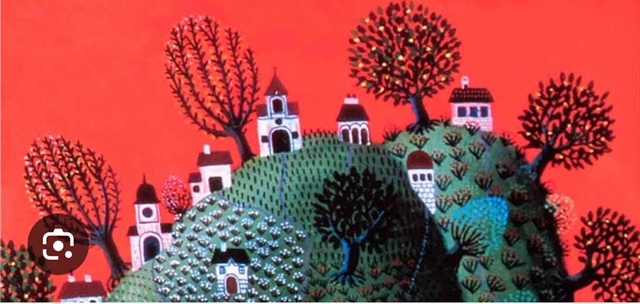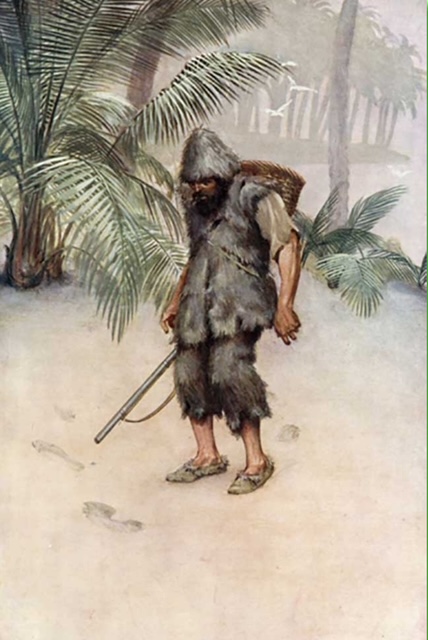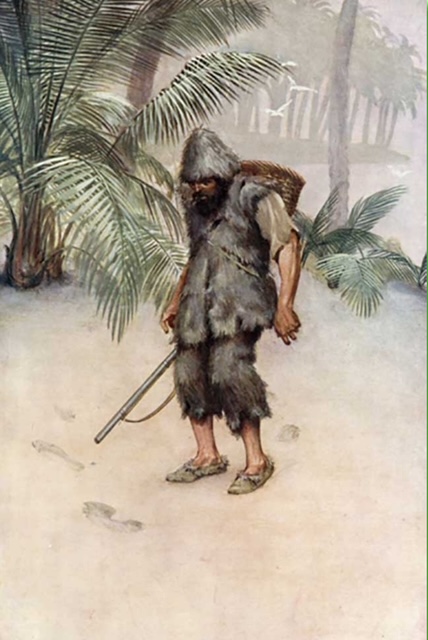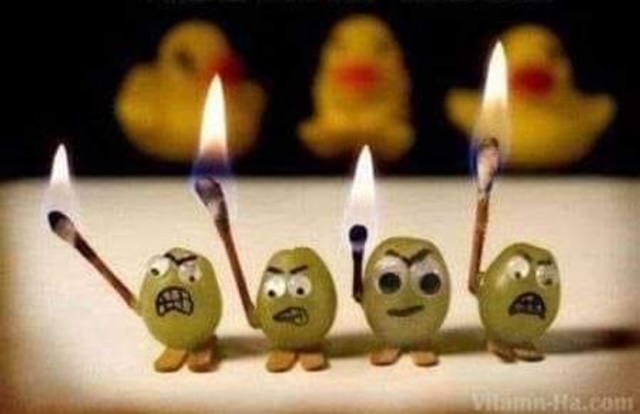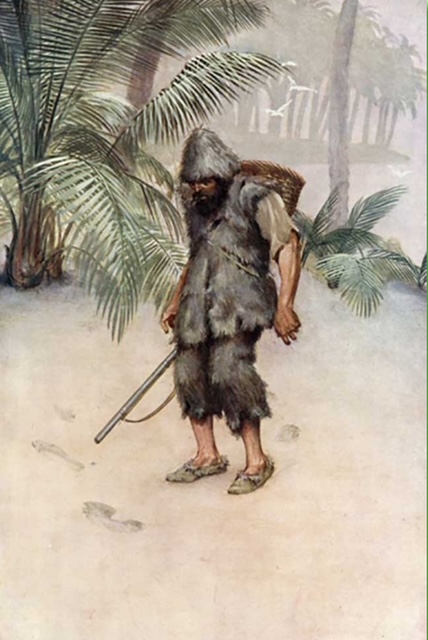
de Daniel Defoe
După trei ani petrecuți pe insulă, hainele mele sunt deja foarte vechi. Încep să folosesc pieile animalelor. Fac o șapcă și alte haine din piei.
Am nevoie și de o umbrelă. Încerc să fac și o umbrelă din piei. Este greu la început. Este nevoie de ceva timp. Dar am succes până la urmă.
După trei ani, sunt destul de fericit. Am tot ceea ce îmi trebuie pentru viața mea.
Viața mea pe insulă continuă în următorii 5 ani. În acest timp, mă hotărăsc să mai fac o canoe. Canoea este mai mică. Nu este dificil să o duc pe plajă.
Canoea este terminată în iunie. Vreau să călătoresc în jurul insulei cu o canoe. Am pus mâncare, apă și pistoale în canoe. Sunt gata de excursie.
Începutul călătoriei mele nu este ușor pentru mine. Sunt în pericol când începe călătoria mea. Trebuie să ocolesc niște stânci în mare.
Când vreau să mă întorc pe pământ, simt un curent puternic sub canoe. Curentul mă duce departe de insulă. Situația este oribilă. Sunt speriat. Nu pot supraviețui în larg. Nu am suficientă mâncare și apă pentru o călătorie lungă.
Lupt foarte mult împotriva curentului timp de două ore. Apoi, mă apropii de insula mea. Îmi pot continua călătoria în jurul insulei. Acum, știu că sunt mai puternic decât curenții din jurul insulei. Mă simt bine. Mă simt puternic.
În curând, găsesc un mic râu. Merg sus pe râu. Dar nu ajung nicăieri pentru că în curând râul este foarte îngust. Pietrele blochează drumul. Nu pot continua. Las canoea unde este.
Vreau să explorez această parte a insulei. Nu sunt departe de partea insulei pe care o cunosc. În curând, găsesc drumul spre casa mea din vale.
Sunt foarte obosit de la excursie. În curând, dorm.
Apoi, aud o voce. Mă trezesc. Vocea îmi spune numele: „Robinson, unde ești? Robinson, unde ești?
În primul rând, mi-e frică. Dar apoi văd papagalul meu Poll. El stă deasupra gardului. El știe aceste cuvinte de la mine. Și el spune aceste cuvinte cu aceeași intonație ca mine.
Sunt surprins când îl văd aici. Mă gândesc: „De ce nu este acasă?” Dar sunt fericit când îl văd.
Nu mă întorc la canoe. Mă întorc acasă cu papagalul.
Nu fac o astfel de călătorie timp de un an. Stau în casa mea de cele mai multe ori. Fac mai multe unelte și oale. Pot să fac și coșuri foarte frumoase acum.
In English:
After three years on the island, my clothes are already very old. I start to use the skins of the animals. I make a cap and other clothes from the skins.
I also need an umbrella. I try to make an umbrella from the skins too. It is difficult at the beginning. It takes some time. But I am successful in the end.
After three years, I am quite happy. I have everything what I need for my life.
My life on the island continues for the next 5 years. During this time, I decide to make another canoe. The canoe is smaller. It isn’t difficult to move it to the beach.
The canoe is finished in June. I want to travel around the island in the canoe. I put food, water and guns in the canoe. I am ready for the trip.
The beginning of my trip isn’t easy for me. I am in danger when my journey starts. I have to go around some rocks in the sea.
When I want to go back to the land, I feel a strong current under the canoe. The current is taking me away from the island. The situation is horrible. I am scared. I can’t survive in the open sea. I don’t have enough food and water for a long journey.
I fight very hard against the current for two hours. Then, I am able to get close to my island. I can continue my trip around the island. Now, I know that I am stronger than the currents around the island. I feel good. I feel strong.
Soon, I find a small river. I go up the river. But I get nowhere because soon the river is very narrow. Stones block the way. I can’t continue. I leave the canoe where it is.
I want to explore this part of the island. I am not far from the part of the island which I know. Soon, I find the way to my house in the valley.
I am very tired from the trip. Soon, I sleep.
Then, I hear a voice. I wake up. The voice is saying my name, “Robinson, where are you? Robinson, where are you?”
First, I am scared. But then I see my parrot Poll. He sits on top of the fence. He knows these words from me. And he is saying these words with the same intonation as me.
I am surprised when I see him here. I think, “Why isn’t he at home?” But I am happy when I see him.
I don’t go back to the canoe. I return home with the parrot.
I don’t make such a trip for a year. I stay in my house most of the time. I make more tools and pots. I can also make very nice baskets now.
